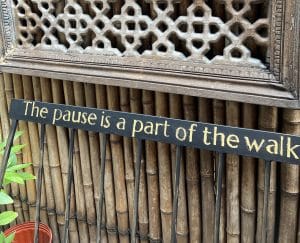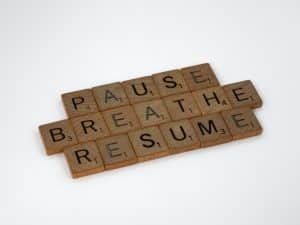
I read an article last week that took about 5 minutes to zip through. A week later, I’m thinking about those 5 minutes.
Also, in my typical style, I’ve told everyone I know – including you – about it.
Although right now you’re probably calling me out on how it’s not very mindful to be living in the past, gimme a second to explain. You’re right, though. Generally speaking.
This article had me looking at many of my present moments that followed, including mySELF in them, through a different lens.
You can check it out here, if you have 5 minutes. And/or, I’ll tell you what about it had me take a seat back and say, whoa. That’s mindful.
The article talks about the now-highly-politicized decision among Americans to mask, or not to mask. Because many of the readers of the publication it appeared in are mask-wearing types, it looks to explore the “other side” – the unmasked among us. Specifically, it peeks into the defiantly and enraged unmasked who claim their basic civil rights are infringed by requests to wear masks in certain public spaces.
As you’ve probably gleaned, I’m a mask-wearer. Is it because I find them comfortable in the stifling July heat of the American South? It is not. It’s because this isn’t about me (in my opinion).
But I digress. In the article, author Julia Marcus essentially takes the apparent self-entitlement, bravado and even rage that often accompanies anti-mask commentary, and asks us to look at what’s beneath it.
We have all suffered tremendous losses this year, ranging from actual lives, to livelihoods, to celebrations, adventures, hugs, and most of all, “normal.” Some of that “normal” needed to go. Other parts of it, we may miss. We are all grieving these facts.
If you’ve ever experienced grief, you know it’s a painful place to be. Like any negative emotion, our first response (before mindfulness) may be to move that pain away. One way to do this is through anger, preferably directed towards someone or something that you can blame for your grief.
What if at least some of the people who annoy you the most are actually not total a**holes, though? What if at their core, they’re just really, really suffering? They’re sad, disappointed, and angry. They’re grieving, and they don’t have mindfulness to help them through it.
Compassion doesn’t justify hurtful behavior, but it may help you see it through different eyes. Even more, it may open the possibility of progress in the midst of opposing viewpoints, conversation over yelling, and the uncovering of the common experiences, and emotions, that actually unite us.
Photo by Bára Buri




2 thoughts on “Hidden motives”
Or they’ve just been spoiled their whole lives?
Anything is possible! We don’t get to know. I think the article author’s comparison’s to the use of shame vs. other tactics to entice behavior change in prior public health campaigns (seatbelts, condoms) is interesting, though. It gave me some food for thought anyway, in terms of ways to help more people understand the importance of what feels to me like a simple step! #wearamask